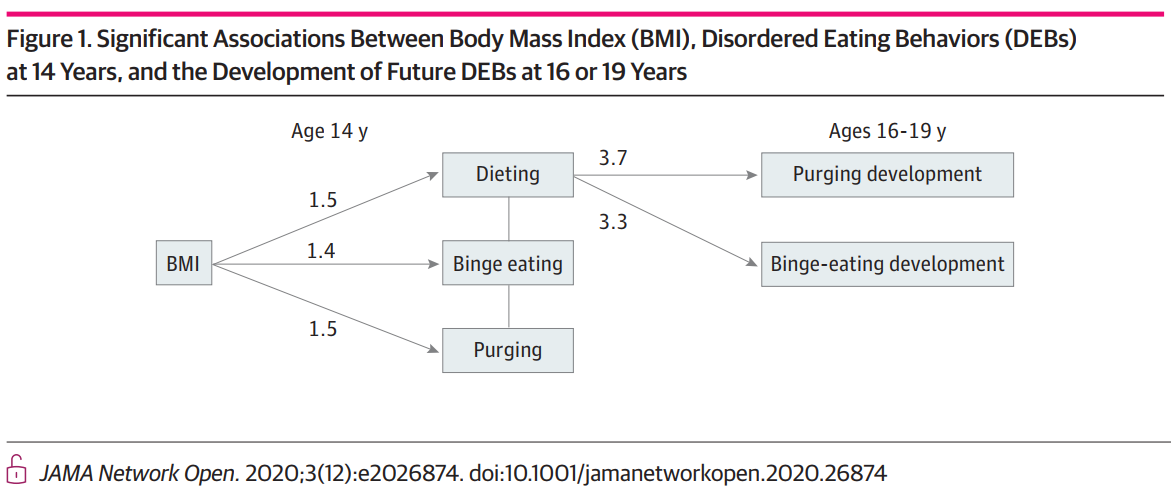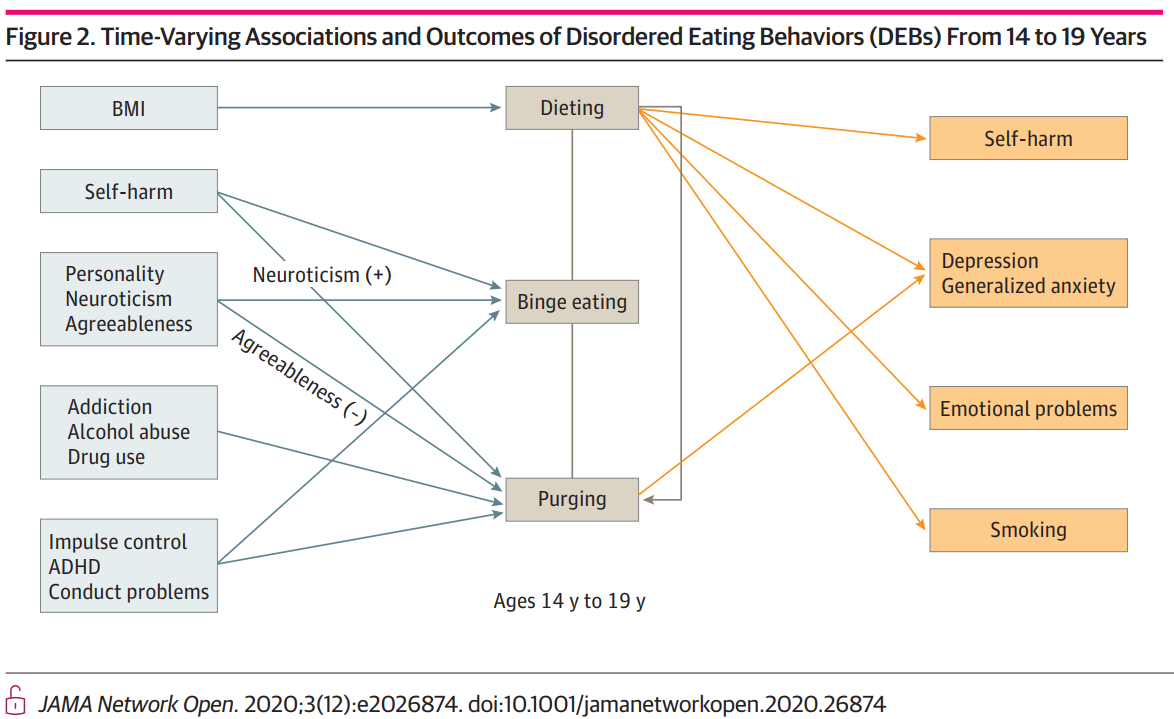Genotype and Phenotype in Eating and Mental Health Disorders Onset in Adolescents
My research paper “Association of Genetic and Phenotypic Assessments With Onset of Disordered Eating Behaviors and Comorbid Mental Health Problems Among Adolescents”, co-authored with Dr Lauren Robinson at King’s College London, has been published in JAMA Network Open in December 2020. You can read and download the full text here doi:10.1001/jamanetworkopen.2020.26874, which is open access. There is also a commentary on our paper doi:10.1001/jamanetworkopen.2020.27188.
Sincere thanks to all the participants and researchers in the IMAGEN study and the ESTRA study. Thank you for reading and for your interest.
Research summary
Question Do associations exist between disordered eating behaviors (DEBs) and other mental health disorders in adolescence, and if so, to what extent are those associations genetically predisposed?
Findings Longitudinal assessments in this cohort study of a population-based sample of 1623 adolescents indicated that body mass index (BMI), neuroticism, impulse control, and addiction-related behaviors at 14 years of age were differentially associated with future disordered eating behaviors and symptoms of depression and generalized anxiety. Genetic analyses suggested etiologic overlaps between BMI, neuroticism, and attention-deficit/hyperactivity disorder with dieting, binge eating, and purging, respectively.
Meaning Genetic and phenotypic assessments of BMI, impulse control problems, and personality may inform early and differential diagnoses of eating disorders.
 The arrows in Figure 1 indicate a statistically significant association surviving the false discovery rate correction (corrected P < .05 for 15 tests). Numbers next to arrows represent odds ratios. All models account for both sex and study site. For each DEB shown in the middle column, other DEBs have been accounted for in the model (eg, in the association between dieting and purging development, binge eating at baseline was controlled for).
The arrows in Figure 1 indicate a statistically significant association surviving the false discovery rate correction (corrected P < .05 for 15 tests). Numbers next to arrows represent odds ratios. All models account for both sex and study site. For each DEB shown in the middle column, other DEBs have been accounted for in the model (eg, in the association between dieting and purging development, binge eating at baseline was controlled for).
 The arrows in Figure 2 indicate a significant association surviving the false discovery rate correction (corrected P < .05 for 89 tests). ADHD, attention-deficit/hyperactivity disorder; BMI, body mass index.
The arrows in Figure 2 indicate a significant association surviving the false discovery rate correction (corrected P < .05 for 89 tests). ADHD, attention-deficit/hyperactivity disorder; BMI, body mass index.